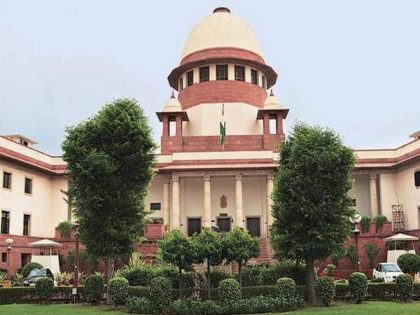Supreme Court Upholds 'Right To Privacy' For Candidates in Elections, Says 'Voter Has No Absolute Right To Know'
By Lokmat English Desk | Published: April 9, 2024 01:56 PM2024-04-09T13:56:22+5:302024-04-09T13:58:00+5:30
The Supreme Court on Tuesday, April 9, held that a voter has no absolute right to know about each ...

Supreme Court Upholds 'Right To Privacy' For Candidates in Elections, Says 'Voter Has No Absolute Right To Know'
The Supreme Court on Tuesday, April 9, held that a voter has no absolute right to know about each and every moveable property of candidates in elections and that the candidate has the right to privacy in matters which are irrelevant to their candidature.
The apex court further stated that the candidates need not disclose each and every asset owned by them or their relatives unless they are of substantial value or reflect a luxurious lifestyle.
Also Read | Supreme Court Directs Google to Clarify PIN Location-Sharing Feature in Response to Bail Condition.
The order issued by the bench comprising Justices Anirudhha Bose and Sanjay Kumar set aside the order of the Gauhati High Court, which had declared Karikho Kri's election null and void. The top court rejected the petition that stated that the voters have a right to know about the assets of candidates and that Kri must have revealed all details.
Supreme Court Upholds 'Right To Privacy' For Candidates in Elections:
#BREAKING#SupremeCourt holds that a voter has no absolute right to know about each and every asset of a candidate and that the candidate has the right to privacy regarding matters which are irrelevant to the candidature.
— Live Law (@LiveLawIndia) April 9, 2024
Candidates need not disclose each and every moveable… pic.twitter.com/IDZAPoEgPK
The bench cited examples of fancy clothing, shoes, crockery, stationery, and furniture as irrelevant for disclosure unless they are of such value as to constitute a sizeable asset in itself or reflect upon his candidature regarding his lifestyle.
However, the bench said that if a candidate's relative owns several high-priced luxury assets, then they would have to be disclosed as they constitute high-value assets and depict their lavish lifestyle. The apex court said that there could not be a "hard and fast" rule regarding this, and each case needs to be dealt with on its own merits and facts.
Open in app